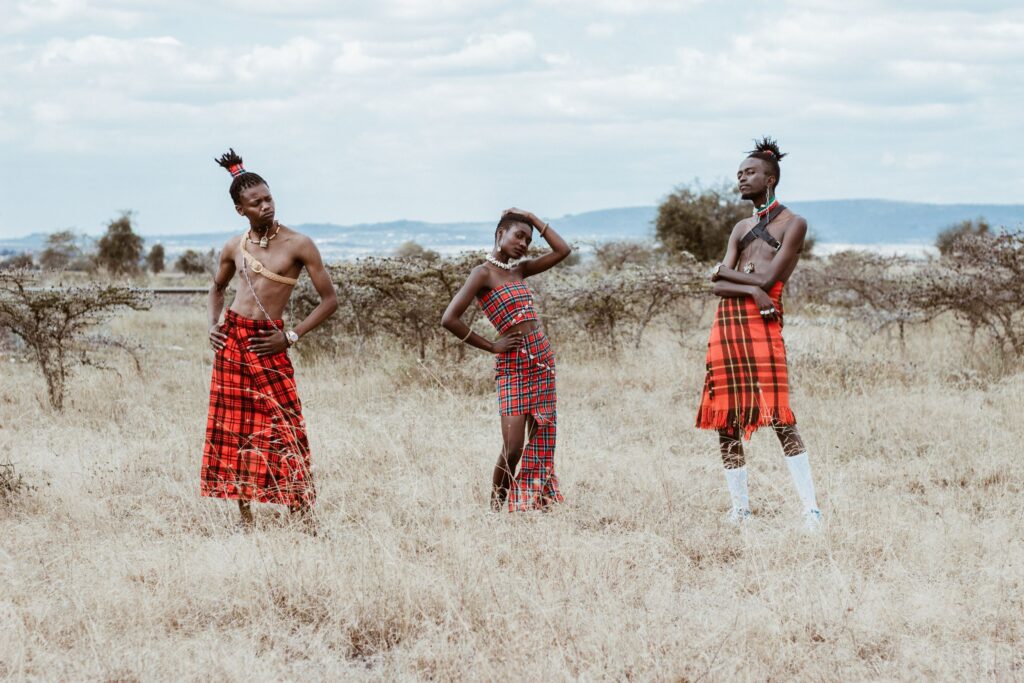
Photo by Breston Kenya
It’s high time for us to discuss why this matters. Cultural appropriation has no plans to stop anytime soon, and it has been the longtime struggle of every black person, not just in America but worldwide.
Cultural appropriation is picking apart one cultural aspect that isn’t theirs and mimicking them without consent from the origins. Things like aesthetics, traditional practices, artifacts/items, etc., are often prone to such disrespectful acts. It is done purely for selfish reasons, profit, clout, or the shallowest reasons other than liking them.
Cultural appreciation is the opposite; it is the respectful way of deriving cultures from other communities. Its purpose is to broaden one’s understanding and experience of the world around them. Appreciating different cultures also come with putting value into their identity and history. Unlike appropriation, it doesn’t use other cultures as a hobby or collection.
Deeply understanding appropriation
When you notice someone uprooting imagery specific to a cultural group, taking away their original context, appropriation is not illegal, so why should everyone care? Although correct, we still have to. Identifying the forms of cultural appropriation (exchange, dominance, exploitation, transculturation) helps us understand further how far one can go in misusing other cultures for aesthetics.
The fine line between cultural appropriation and appreciation
It’s critical to be familiar with the context since there is a fine line between what’s appreciative and what’s merely a case of mocking culture. Especially the worldwide appropriation of several Black aspects like the well-known protective hairstyles exclusive to Black people, their physical features, way of speaking, etc., you cannot simply cherry-pick particular bits of the culture you like, adopt them and parade them around for people to see.
Here is how you can identify the difference between cultural appropriation and appreciation:
Appropriation
- Utilizing sacred artifacts for non-spiritual purposes
- Wearing traditional headdresses and turbans in fashion shows, leisure walks, and gatherings
- Borrowing cultural elements without acknowledging their origins
Misusing significant items and aesthetics from other cultures is only fueling harmful stereotypes. It will continue to be mindlessly spread around others, unaware that such acts are wrong. BIPOC people have been vigilantly calling out various individuals/groups online, including celebrities who are non-Black, receiving flak about mistakenly wearing braids and cornrows or surgically changing their physical looks to look more Black, even though they’re not one.
It’s not just white people who are notoriously appropriating Black culture. Even Asians, who also have beautiful and diverse subsets of culture, are participating in this disrespect. For instance, Asian musicians who don’t have Black descent also wear the same braids and dreadlocks. Pop culture began to use AAVE (African American Vernacular English) with a lack of understanding as to how native speakers use every word. Another worst part is the mainstream culture popularizing “ghetto talk,” which was initially a derogatory term against Black Americans, now used by non-BIPOC to sound cool and hip. It’s no different from colonization, which deteriorated a lot of cultural traditions throughout the years.
Appreciation
- Striving to learn and understand cultures that are not your own with pure intentions
- When someone sincerely experiences a different culture where there should be no traces of stealing from it.
Life flows within various cultural influences, and if we are not a part of it, we have no right to keep taking it for personal pleasure. This isn’t gatekeeping cultures in an attempt to protect, but rather, active participation and comprehensive exchange that doesn’t involve ill will. We have to make an effort to recognize how these cultures shaped and built the history and identity of these nations.
Why this discussion matters
Honoring cultures is relatively easy. They exist as nation-builders and are integral to how their particular groups function. Society can sometimes be hypocritical when talking about appropriating Black culture. Their protective hairstyles have a valuable purpose, and instead of institutions normalizing that, they seemingly punish Black people for having those exclusive hairstyles.
Being a decent human means understanding that a culture you don’t own shouldn’t be a part of your identity if they’re only used with ill intentions. We must be aware that double standards exist between Black people embodying their culture versus other people, particularly celebrities who try to mimic how Black people look, talk, and carry themselves. You can learn more about Black people’s struggles through the book “American’t: The Corporate Plantation” by King Bell.
Black culture has been repetitively exploited throughout generations, driven by pop culture’s necessity to stay relevant. Sadly, the people victimized by this appropriation are still not being taken seriously, dismissing their outcries as trivial and unimportant. There needs to be deep-seated education on when and where we should appreciate POC culture without offending it. After all, wouldn’t it be more beautiful if these cultural backgrounds were celebrated and not exploited?

